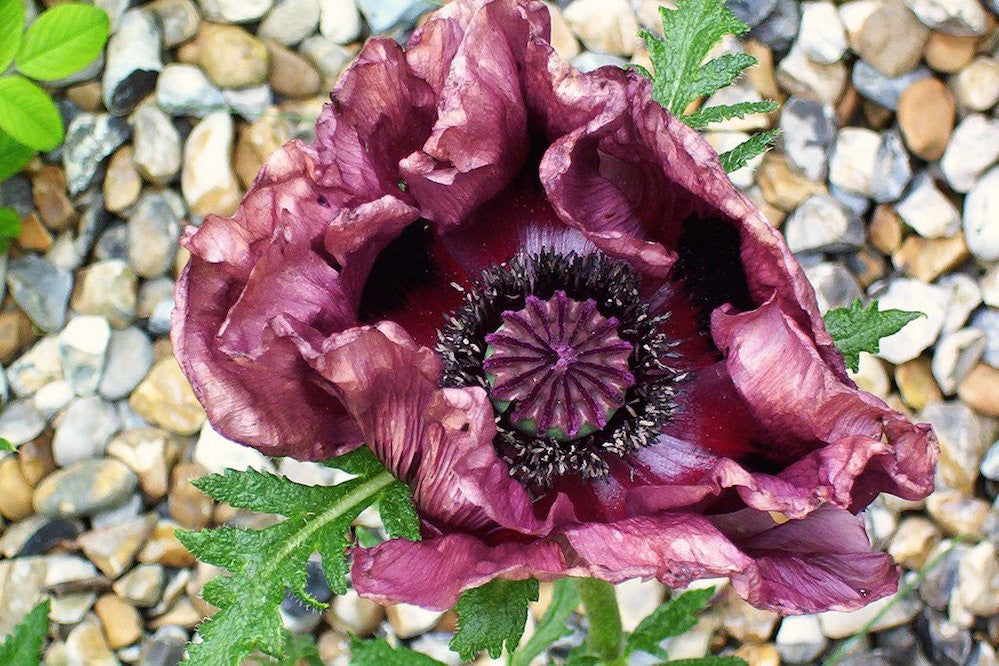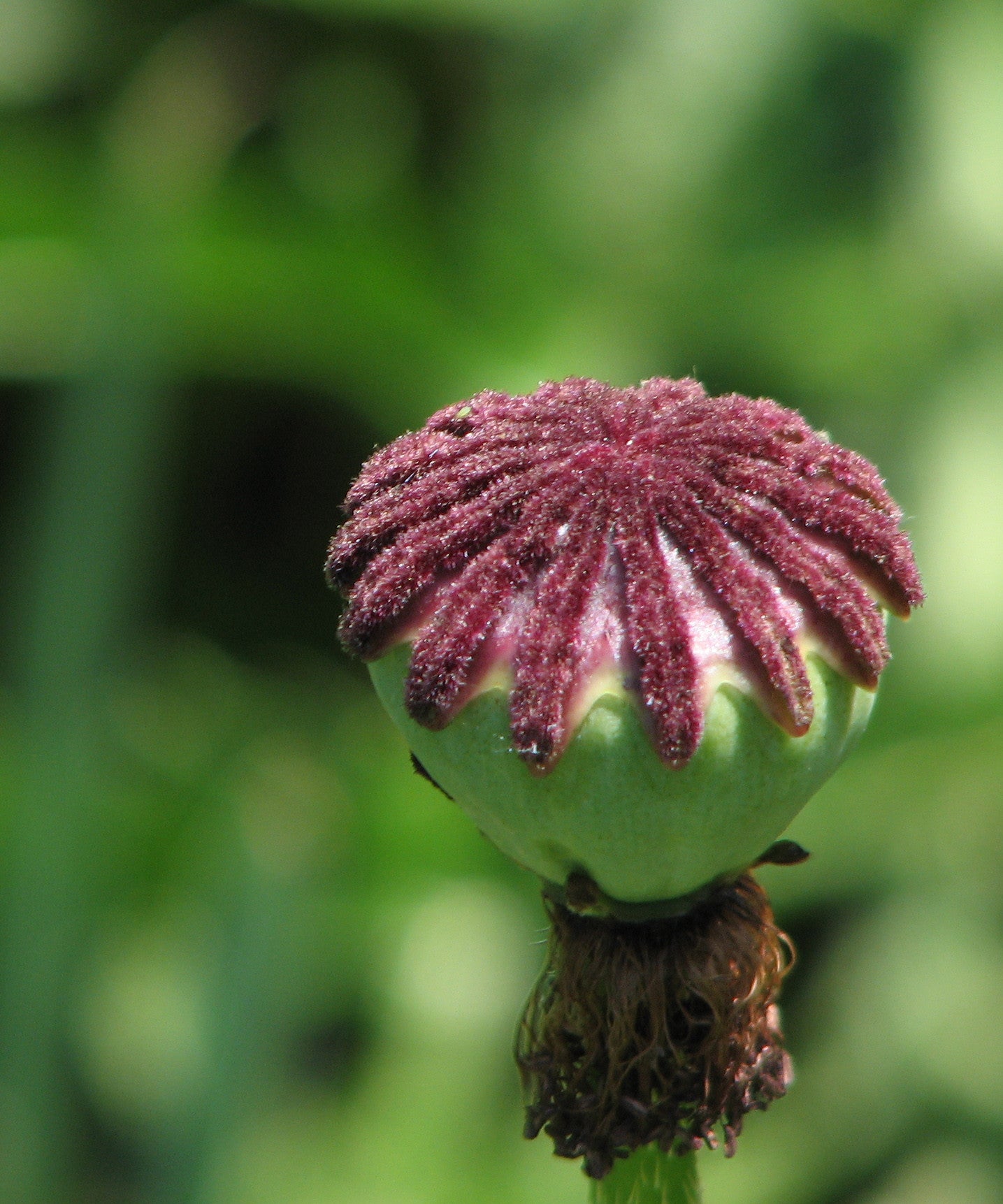Papaver orientale 'Patty’s Plum'
Approx. 0.5 litre pot
About this cultivar:
Papaver orientale 'Patty’s Plum' was initially discovered as a chance seedling on the compost pile at Patricia Marrow’s Somerset nursery. This gorgeous Papaver is celebrated for its huge, uniquely coloured plum wine flowers. The wide elegant blooms showcase dark black blotches at the base of each papery petal and a blackberry-hued ring, which encompasses an ornate gold and maroon knobby boss. Splashing saturated colour across the summer border or an arrangement, the opulent display is supported by serrated grayish green leaves.
- Position: Full sun, partial shade
- Soil: Almost any soil, grows well in Ballyrobert
- Flowers: June, July
- Other features: -
- Hardiness: Fully hardy, grows well in Ballyrobert
- Habit: Clump forming
- Foliage: Deciduous
- Height: 60 - 90 cm (2 - 3 ft)
- Spread: 60 - 90 cm (2 - 3 ft)
- Time to full growth: 2 to 5 years
- Plant type: Herbaceous Perennial
- Colour: Green, purple, pink
- Goes well with: Grasses
About this genus:
Papaver (pap-a-ver) is a genus of 70–100 species of frost-tolerant annuals, biennials, and perennials native to temperate and cold regions of Eurasia, Africa and North America. It is the type genus of the poppy family, Papaveraceae. No one really knows the origin of the name!
Wielded by man since prehistoric times, Poppies have long been associated with sleep and oblivion, and after the First World War, the Flower of Forgetfulness ironically evolved into a symbol for remembrance. Generally distinguished by nodding buds, solitary fleeting flowers gracing long stems, and decorative seed heads, these plants appreciate a somewhat dry position. However the cultivars we have here will also do well in wet clay - we know this because we grown them in our own wet-clay garden! In fact we have grown some cultivars under trees (you won;t read about that). So in general - any soil that isn't a pond and sun to part-shade.
As for partners; try them on their own or with grasses!




